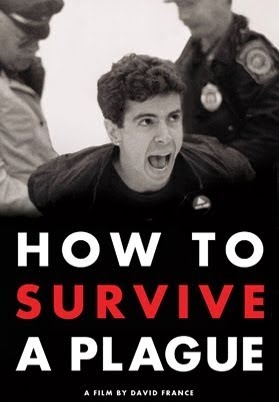ELEMENTARY: A LANDMARK STORY
Holmes Preservation...
Given that A Landmark Story is the first of interconnected Elementary stories that will revolve around Sherlock Holmes' (Jonny Lee Miller) search for Moriarty, the man responsible for his one true love Irene Adler's death, I wonder if I should judge this as the first part of either a trilogy or a quartet (since the season-finale is a two-part story). However, let us now judge A Landmark Story on its own merits. With some excellent performances and some nifty twists and turns, A Landmark Story is that (even if it gets a bit lost in itself).
Sebastian Moran (Vinnie Jones) is out of solitary confinement and back to his beloved Arsenal football match-watching when a news report catches his attention. He summons Holmes to inform him that the victim, one Phillip Van Der Hoff (Byron Jennings) was an intended target for Moran by his employer, a certain Moriarty. As such, Moran believes that Moriarty has hired another assassin to do his job. He tells Holmes this because like the detective, our former Colonel wants revenge for being sold down the river. With that, Holmes and Dr. Joan Watson (Lucy Liu) begin investigating what was ruled a heart attack.
Now, we already know that Van Der Hoff has been murdered via manipulating his pacemaker. An impromptu autopsy shows this, and Holmes deduces that this case is tied to the Taggart Speakeasy Museum, which has successfully remained protected by the Landmark designation. However, Holmes finds that Landmark Board members one by one have slowly voted to deny landmark protection for the Museum (Vote to Revoke), and now they are one vote short. The man most interested in the property, Robert Baumann (Laurence Lau) now is also conveniently dead, an air conditioner accidentally landing on him.
No accident says Holmes. Having the sense that Hillary Taggart (Helen Coxe) is the next victim, he and Watson stakes her out. With Watson's help he finds that she's allergic to insect stings, and deduces that the killer will use a 'convenient' bee hive to sting her to death. A stake-out finds the killer, and Holmes now has a connection to Moriarty.
The killer is Daniel Gottlieb (F. Murray Abraham), who uses his skills to kill people and make it look like accidents or natural deaths. We learn that Gottlieb had once been contracted by Moriarty to kill Holmes via an 'accidental' overdose but at the last minute Moriarty cancels the order (the only time Gottlieb ever got a cancellation). Gottlieb however has never actually met Moriarty, but his coded phone does help lead Holmes to a John Douglas (Roger Aaron Brown). He knows something about Moriarty but is shot down before talking.
Holmes now is going to try to break the code, and tries to get Moran to help. Moran at first appears to refuse, but too late does Holmes realize he's been played. The code Holmes showed him was really meant for Moran, saying that either Moran die or his sister. A Landmark Story ends with Holmes receiving a phone call, from one Moriarty...
I think we should call A Landmark Story the first part of an overarching story that will wrap up what has been on the whole a very good opening season for Elementary. I almost feel I can't fully judge the story, however, because I feel tempted to see A.) how it fits into the overall story arc, and B.) it as part of one large story rather than an individual episode. However, since I've been looking at these as a series of stories I will have to judge it as such.
On the whole, I found A Landmark Story to be filled with excellent performances. F. Murray Abraham merits serious Guest Star in a Drama Emmy consideration. His Daniel Gottlieb was wonderful and brilliant: never given to outbursts or hysterics, he was almost courtly and highly clever. His opening scene where he tortures Van Der Hoff is almost light in how Abraham performs it: a man who takes pleasure in both the madness and the method. One hopes that even though he has been handed over to the police Gottlieb might make a return appearance given he has proven a worthy advisory for Holmes.
We also give credit to Vinnie Jones, someone who has never been considered an actor but more of a tough guy who found himself in acting. One wouldn't go to him to portray Macbeth but here Jones had a mixture of menace and madness as Moran. When we learn that the code was actually a message for Moran, we can recognize that he didn't give away the fact that he was basically ordered to commit suicide. It is an excellent performance.
I'd also say that both Miller and Liu find great moments together. The little hint of a smile when Watson has to do the autopsy betray that he basically manipulated her into it. He wanted her to do the autopsy but wouldn't admit it. Later, when Holmes confesses that he won't go all psycho on Gottlieb as he did with Moran because "the thing that is different is you," we see a little smile slip past Liu, betraying her own delight at getting praise from the difficult Holmes.
Liu also brings a more menacing turn when she collaborates with Holmes in trying to squeeze information out of Gottlieb. She certainly is turning out to be a magnificent Watson.
We still have some quips, mostly from Miller's Holmes. When commenting on Taggart's activities, he remarks "The rest of her time seems to be devoted to running laps at the pace of a third grader with a sprained ankle." Later, when Holmes is cracking the code (which has shades of The Dancing Men) and Watson inadvertently gives him the clue he needs, he exclaims, "Some people without possessing genius have a remarkable knack for stimulating it."
Corrine Brinkerhoff's script does seem to forget about the actual caper that brought us here (unless Moriarty has been the one involved in the shady land grab). I confess to being a bit lost in that, and in the fact that poor Jon Michael Hill's Detective Bell didn't even make an appearance (at least that I remember). Also, we did go back slightly in having Watson have to keep up a bit with Holmes, and while it's not much one should watch for letting Miller and Liu slip to being trainer and stooge.
Still, on the whole I enjoyed A Landmark Story, particularly Abraham's turn as the methodical killer. The plot may have been slightly forgotten, but hearing Moriarty's voice is quite chilling and effective, opening up what we hope will be a successful season finale.
 |
| According to this, our identities have been stolen by a Freeman and a Cumber-something... |
8/10
Next Story: Risk Management








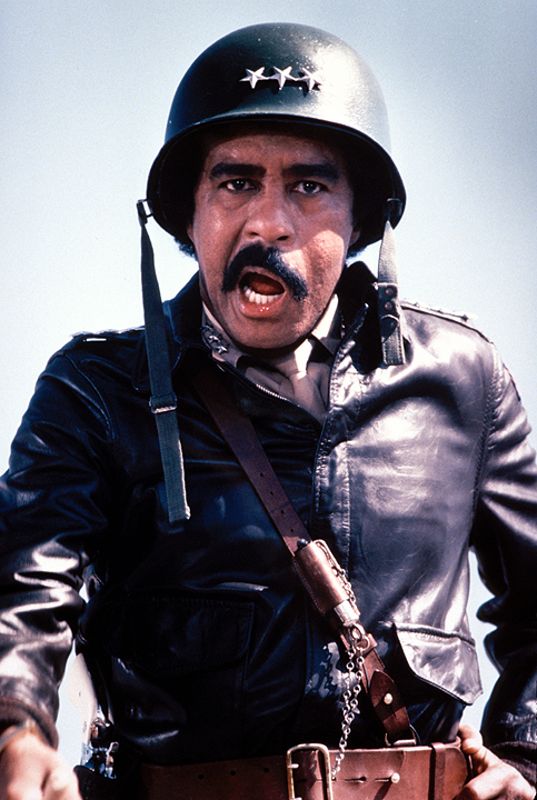
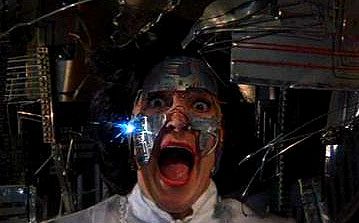
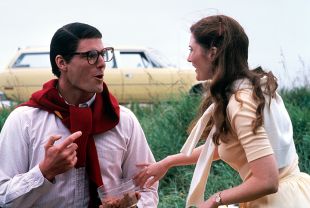

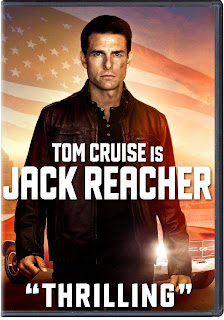








_01.jpg)




